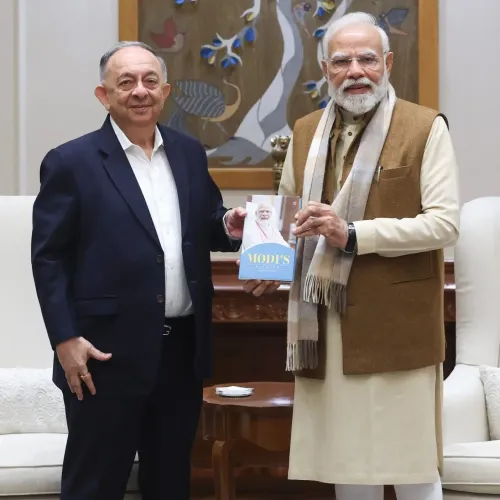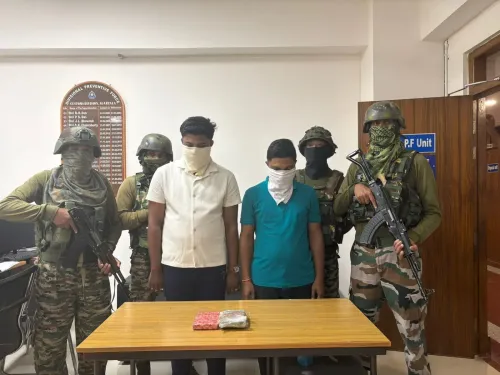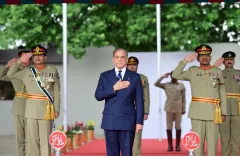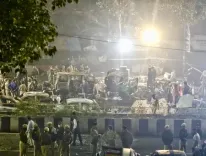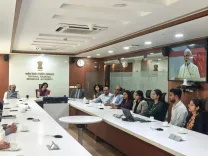Did Thackeray Camp Justify a Strong Critique of RSS Chief Bhagwat?
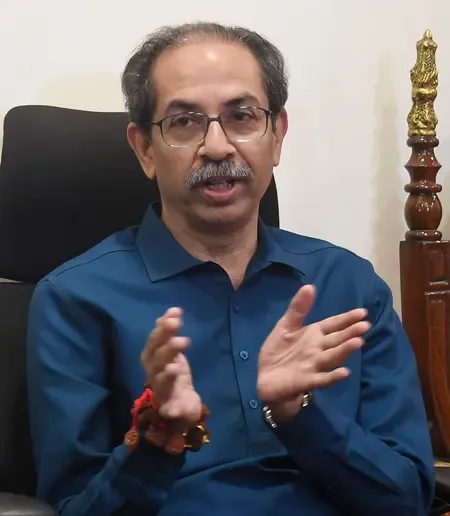
Synopsis
Key Takeaways
- The Shiv Sena criticizes RSS chief Mohan Bhagwat for echoing the BJP narrative.
- Concerns raised about the erosion of constitutional values in India.
- Public unrest is viewed as a democratic right that cannot be suppressed.
- Editorial draws parallels with protests in neighboring countries.
- Calls for accountability from political leaders in the face of public anger.
Mumbai, Oct 4 (NationPress) The Shiv Sena (UBT) on Saturday launched a scathing critique of Rashtriya Swayamsevak Sangh (RSS) chief Mohan Bhagwat, alleging that he merely parrots the BJP government’s narrative instead of holding the Centre responsible for the deterioration of the Constitution, Parliament, and judiciary, as well as the escalating public unrest throughout the nation.
In its editorial featured in Saamana, the Thackeray camp stated, “The RSS chief is concerned that the public discontent seen in neighboring countries could also ignite in India. Over the past decade, Modi and Shah have made false promises to the populace, incited religious riots, and surrendered the country to crony capitalists. Bhagwat should have made a bold statement against this robbery and offered guidance to the nation. Instead, he has aligned himself with those who cowardly echo the government’s tune.”
The editorial sarcastically questioned, “Bhagwat, you too?” This implies that even the Sarsanghchalak has opted to praise the BJP’s governance rather than address the rising unrest and diminishing autonomy of constitutional institutions.
It emphasized the need to scrutinize “what kind of nationalism and Hindutva is embedded in the DNA of the RSS when it backs a government that jeopardizes the Constitution, Parliament, judiciary, and even the cultural unity of the country.”
Warning that public unrest and mass movements are democratic rights that cannot be suppressed by rulers, the Thackeray camp remarked, “Change can only occur through democratic means, but what occurs when constitutional institutions start endorsing a dictator’s regime?”
The Thackeray camp referenced the violent public uprisings in neighboring Sri Lanka, Bangladesh, and Nepal, which resulted in governmental changes. It noted that forces inciting such unrest are active both domestically and globally.
“Bhagwat commented that street protests are inappropriate. Is this guidance accurate, or is it reflective of BJP’s politics that perpetually ignites violence and fosters hatred between Hindus and Muslims?” they questioned.
The piece in Saamana further claimed, “The Modi-Shah administration is simply fulfilling the RSS’s ambition — replacing a tolerant Hindu ethos with a fanatical, twisted vision of Hindu Rashtra. Essentially, the RSS envisions a Hindu version of Mohammed Ali Jinnah’s regime, a Hindu Pakistan, where freedom, democracy, and Parliament are sacrificed.”
“The intellectual wing of the RSS should reflect on why public anger erupted in Sri Lanka, Nepal, and Bangladesh. The rulers there first intoxicated their people with a dose of religious fanaticism and extremist nationalism, gradually increasing that dose and transforming the populace into blind devotees. When the people reached such a state, they plundered the country and enriched their friends, industrialists, and relatives,” the editorial added.
It concluded that when the public became infuriated, they took to the streets demanding their rights. They battled the government in the streets, and the government resorted to violence against the protesters. “People, undeterred by guns, stormed the homes of ministers and demolished them. They brought the corrupt to the streets and executed them. While violence indeed occurred, it is crucial to recognize that it stemmed from public outrage against the rulers. That is the reality when democratic avenues are closed — public anger transforms into revolution,” it remarked.


